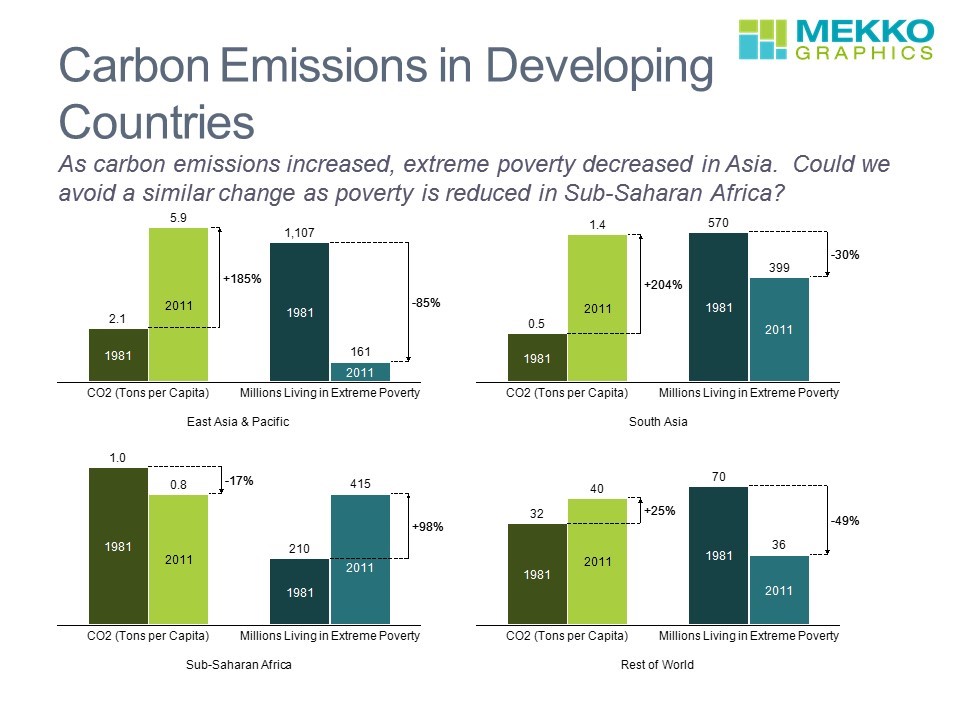Blogs
How does your footprint reflect the economy of your country, including its colonial relations?
One of the most difficult challenges is to strike a balance between curbing global carbon emissions and allowing developing nations like India to develop their countries. Countries like China and India are direct proof of this.
What is clear is that the regions that have seen extreme reduction in poverty have increased their carbon emissions by almost 200%. The only exception is Sub-Saharan. Sub-Saharan Africa has seen the number of people living in extreme poverty almost double while their carbon emissions severely reduce.

Many developing nations such as India, demanded at the Paris talks in 2015 for the right to continue to emit carbon for at least the next 15 years to support their growth. Some argue that the Paris agreement is not leaving enough wiggle room for developing nations to do exactly that develop. For long there has been a strong connection between a countries carbon emissions and economic growth as I mentioned earlier. In 2015 6+ countries showed signs of “decoupling”. Which means they were able to grow economically without increasing their carbon emissions. This means developing nations such as Tanzania, Kenya and India no longer have to worry about this
In Kenya we do not heavily rely on renewable sources of energy but majorly on fossil fuels such as natural gas and coal for cooking. This making up a majority of our carbon emissions. Similar to Sub-Saharan Africa Kenya’s carbon emissions have been decreasing while the amount of people in poverty decreases.
How are the effects of climate change related with power imbalances among countries or within countries?
They’re various effects of climate change such as less rainfall, ocean levels rising, ocean acidity and ice caps melting. These are just some to name a few. Although climate change is a global issue, it’s affecting nations differently, for example in Kenya as I mentioned in my previous blog post. Irregular and low rainfall has led to low harvest this year. Since our government and our people are heavily reliant on agriculture for income this of course isn’t a good thing. Kenya being the third-leading exporter of fresh produce this would mean less exports of cabbage, tea, flowers, onions and mangoes, which in turn means less income for the government.
Post comment
1 Comment(s)
The less income will result in poverty will this increase the carbon emissions in kenya?

Lisa Ndegwa
Sep 18, 2017